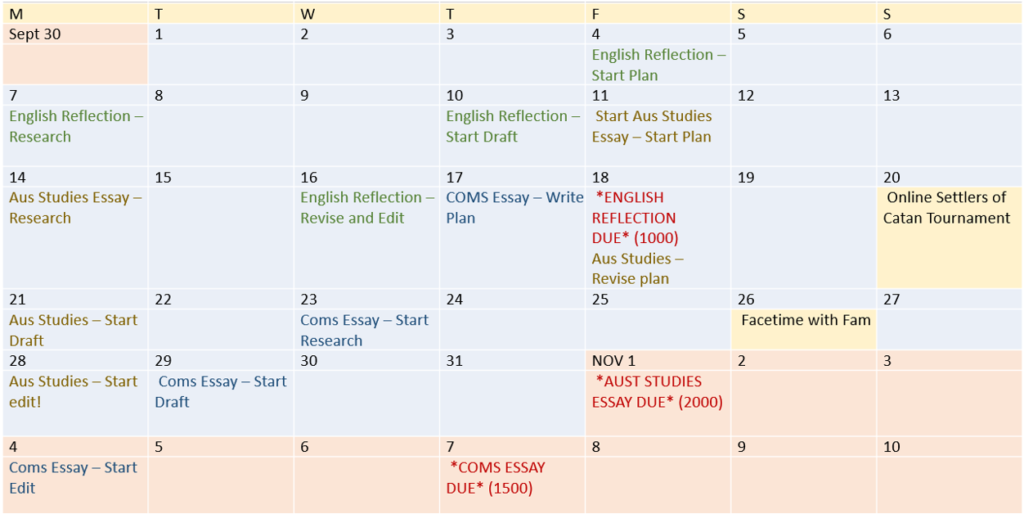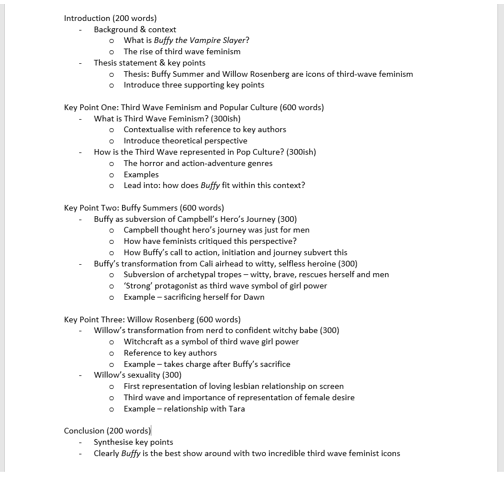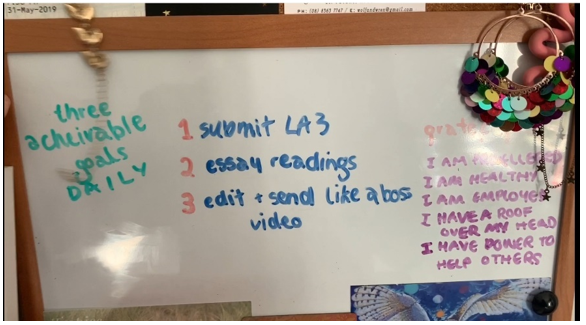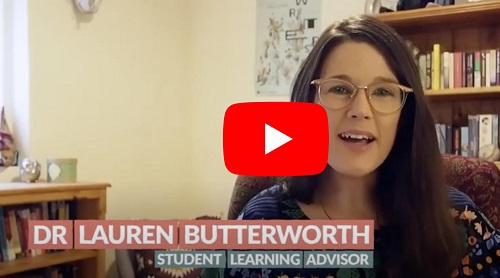Hey fam!
I hope we’re all doing okay this week. We’ve got some really hopeful numbers coming out of SA Health at the moment which means we’re all doing the right thing and it’s working – whoo!
In more study related news, it’s week eight and that means we’re getting into some pretty serious assignment territory. You probably have a bunch of deadlines starting to loom on the horizon, and your anxiety about how to manage all of them – especially with the extra pressure of studying away from campus – might be starting to peak.
So, today I’m going to break down my bona-fide step-by-step process for completing assignments. It’s tried and tested and it’s what I use to write literally everything (including these posts!)
Planning
You guys know I love a good goal-oriented plan by now. Well, guess where we’re going to start today? That’s right: goal-oriented planning, baby! Feels so good, doesn’t it?
- Analyse the task.
This is a step that a lot of students don’t spend enough time on. Trust me – in all my years as a tutor and learning advisor, I’ve seen hundreds of you struggle with this part of the process! There are a few key things we need to look at when we’re analysing the task:
- What is the language of the question? Identify the key content words (those that relate to the topic) and key task words (words that tell you how to do it, eg ‘discuss’, ‘analyse’, ‘why’, ‘how’.)
- Check the rubric. Does it reveal any extra elements to consider such as research requirements?
- Consider what core concepts and knowledge you already know and what you will need to research. Do you already have access to important readings and sources? Or, do you need to find them yourself? How many resources are required, and what kind?

- Develop a timeline
Working from home with a disrupted routine, it is more important than ever to create a realistic and goal-oriented timeline for yourself. So, get out your diary and mark some goals:
- A planning start date. Start at the due-date and work backwards. Consider the length, weighting and research requirements of the assignment and estimate a start date. I recommend about three weeks for a 2000-word research essay or report.
- A research start date. This should come few days after your planning start date. How long you spend on this will be determined by what you discovered about the research requirements and your current knowledge when analysing the task.
- A completed draft date. It’s important to leave several days, if not a whole week, between your completed first draft and your submission date. That way you have time to edit and proofread properly and, if you run into trouble or you’d like some specific feedback (say via the Online Learning Lounge or Studiosity), you have some time.
- Remember to leave a day for TurnItIn if you want your report back before you submit!

Notice how useful this is when you have multiple assignments around the same time?
- Brainstorm
This is another step students often don’t spend enough time on (#notallstudents). You guys just love going straight into the horror of the blank page without giving yourselves a shot at beating it, don’t you 😉 I like to call this the brain vomit part of the process. It’s gross, but it’s because this is where I literally just purge all the ideas and knowledge I have onto a page without restriction and see what’s there.
So, here’s some tips:
- Try a mind-map. Visualising information can help us see connections we’d otherwise miss. They can also help us create a hierarchy of ideas and allow us to see what is most relevant.
- Consider what knowledge you already have. Where are the gaps? What do you need to research?
- If you’re developing an argument, do you already have a position? What other positions exist? What premises might you use to support this position?
- What theories or key topic concepts are relevant?
- What data might you need?
- Can you think of any specific and tangible examples that will help you demonstrate your ideas?

- Write a structural plan
Now that you have an idea of what you want to write about, turn this into a provisional structural plan that will break down each key point and give you some guidance as you write. I consider this to be ***the most important step of the process***
- Consider using headings with an estimated word count for each paragraph (you’ll delete these later).
- Use dot points to outline each main idea, the evidence that will support them, and any relevant examples.
- You may need to do some research before you can outline your ideas clearly. This is a fluid process – it’s okay to move back and forward between planning and research.
Here’s one I prepared earlier. No I didn’t, I made it specifically to demonstrate what a provisional plan might look like – I hope you appreciate the time that went into this arduous and not-at-all-procrastination-based task!
Research
It’s rare that we can approach an assignment without doing any research. While you can’t access the library physically anymore, the librarians are still hard at work and are available for bookings if you need help, and the digital collection is still available.
- Consider what kind of research is necessary and from what sources. Your research will most commonly be made up of:
- Peer review journal articles
- Academic books
- Appropriate websites
- Relevant grey literature
- Use the key words and concepts from your plan to guide your research. This will make your search terms far more specific and useful.
- Integrate the research into your plan. As I said, this is a fluid process! Your plan will inform your research and your research will inform your plan.
- Importantly, keep track of your references as you go! There’s nothing worse than paraphrasing then forgetting which author you’ve referenced.
You when you’re trying to find that quote you forgot to reference in your notes. I have definitely never been this person …

Drafting
Drafting is a super important step. What you submit should not be the first thing you’ve written – your tutors can tell when it is! Plus, the great benefit of drafting is that it helps us avoid cognitive overload. If you have a good plan, you don’t need to stress about the content, evidence or structure of your writing, only the language.

- Revise the plan
Before you start writing, think about whether your research has changed or influenced any of your original ideas and revise as necessary.
- Have you discovered any important new information?
- Has your argument changed?
- Does the logical order of your ideas need to change?
- Have you encountered a counter argument you need to address?
- Write a first draft
Finally – yes, finally – we can start writing. What you’ll (hopefully) find is that now that we have a solid plan, the writing process becomes much easier. No more panic staring at a blank page!
- Chunk your time: concentrate on each key point or paragraph when you’re writing (perhaps as the goal of a single study session?). Turn those dot points into full paragraphs one by one.
- Consider how each idea develops logically and is linked to evidence and examples. When you’re writing at a paragraph level, you can really concentrate on developing a cohesive idea all the way from the topic sentence through to the linking sentence.
- Use the draft to test out which ideas work, and which don’t. Remember this version doesn’t need to be perfect!
- Get some feedback if you need it. The Learning Lounge has moved online and is accessible via FLO and Studiosity is available out of hours.

Editing
As a writer and former professional editor, I’m here to tell you that editing and proofreading are not the same thing! These are two separate processes with different objectives.
- Structural edit
The structural edit is where you’re looking to re-work the content and structure of the draft. It’s more about the big picture than the little details. It includes:
- Re-considering the logical order of ideas
- Creating clearer connections between points
- Re-writing for clarity or better expression
- Deleting or re-writing weak points
I recommend checking your draft against the assignment rubric. How would you grade yourself? Have you met each criteria?
- Proofread
This is where you check for what we in the biz call ‘copy errors’. These are the little things that you’ll find at the end. It includes:
- Sentence structure and expression
- Grammar and punctuation
- Fact-checking
If you struggle with this, I suggest trying to read your work out loud. Often our ears will hear what our eyes don’t see!

Can I be a real nerd and admit that editing is my favourite part of the writing process? I know. I’m sad for me too.
- Check Referencing and TurnItIn
You’ve made it so far, but we’re not quite done yet! The last step is to check our references with a fine-tooth comb and run our assignment through TurnItIn to double-check for any accidental plagiarism.
- Check the formatting and accuracy of your in-text references
- Ensure your reference list is complete and in alphabetical order
- Check you’ve paraphrased properly, and quotes are exact and formatted correctly
When you get your TurnItIn report back, check the matches that don’t look legit. This is important: TurnItIn is text-matching software, not plagiarism-detecting software. It will match your reference list, titles, common phrases, quotes and names. That’s fine! Instead, check your report for poor paraphrasing and missing references.
Submit!
That’s it – you’re ready to submit!
I hope this has been some help to those of you who might be struggling with motivation or who are trying to figure out how to stay on top of their assignments while studying from home. It’s much more difficult to stay on track when we’re not engaging directly with our classes and so hopefully bringing some structure into your process will help.
But now, let’s hear from Susie, Sean, Sideth and Indianna about how they’re coping with their assignments!
Susie
I think one of the most challenging aspects of keeping up with assignments while studying online is not being able to collaborate with other people in your class easily, or being able to ask the people who sit next to you for help if you don’t understand something. Usually I would be able to ask my teachers if I was having trouble with a particular question on an assignment at the end of a class, but that’s not really possible at the moment so I’m finding that really challenging.

Sean
The hardest part of keeping up with your assignments while being stuck indoors all the time is having the motivation to actually get to your class without being distracted by all the millions of things you have in your house, or the other things you need to do. When you’re at uni, it’s easy to connect, but when you’re in your lounge room and there’s the option of watching Netflix or watching your lectures, it’s much more challenging. With the various complications of not being able to work or go out places, it’s really tempting to lean into doing so many other things. Keeping on track is so challenging at the moment.
One thing that I’ve found is getting myself in a separate room where I can be away from everyone that I live with just so I can focus on study. But the other thing that works is the exact opposite – watching lectures with my housemates and we can laugh about the things that are discussed and take them in together. So if you’re hanging out with another student in your family or various other people who might be having to watch online content as part of your career or study, you could always do it together so you have someone keeping in check with you.

Sideth
So before the lockdown, I would go to the university to attend lectures two days a week. I could ask lots of questions to my lecturers and to my friends about my assignments. Since we’re staying home, I’ve lost that opportunity. It’s very challenging, honestly, but you know what? There’s plenty of supports that I use to overcome this challenge. I use the service from the Student Learning Centre – they have guided me to help me understand more about the questions, understanding more about what ideas should be behind that question, and when I create a draft I can use the service from Studiosity. This kind of support makes me feel like we’re being taken care of. It makes me feel like I’m not alone and helps a lot with my mentality.
From my side, I start doing my assignments early. The first time I get the Statement of Assessment Methods, I write down all the deadlines and put it into a Google Calendar. Ten, let’s say, it’s a regular lecture or class I put it in green. IF it’s a deadline, I colour code it in red. Whenever I grab my phone, it syncs all my devices – my computer, my laptop and my phone – and I can see at a glance this week, three weeks, or four weeks in a row. If it’s green or if it’s red, I know my deadlines are coming.

Indianna
Online study has forced me to create new routines and habits. I’ve been a lot more proactive about setting daily goals and stuff I want to get done because I know that if I don’t do that, no one else is going to do it for me. I’m usually pretty prone to leaving things till the last minute. I’m known for procrastination, for sure!
Lately, I’ve surprised myself and I’ve been quite proactive. I’ve just been setting myself really, really small tasks. Usually, I would want to sit down and smash out a whole bucket load of work all in one sitting, but I put off that study session so much that it ends up happening in the last day and, obviously, a stressed assignment isn’t ideal! You aren’t putting as much effort and love into it as you want to.
Whereas right now, I’ve been doing small things for each assignment to set myself up, have that base level of knowledge and understand the task that I’m doing. Each little thing that I’m doing along the way makes that end product seem so much more achievable.
I set three small achievable tasks for myself daily. This is my little whiteboard that’s above my desk and I use this for my goal-setting for the day. This is where I set myself things that I want to do. Sometimes I’ll put more than three, but usually I won’t get more than three done in a day. I also have this list of things that I’m grateful for and I think that’s great to look at and it helps re-centre you and remind you of why you’re doing what you’re doing and what your values are.

I love Indy’s goal-orientated white-board. Amaaaaaze!
If I don’t get all of these done for the day, they’re still really helpful because they’re framing my priorities for the day. They make me aware of tasks that I’m avoiding because if I see that one thing has stayed up on that board for a few days, I’ll go, okay, why am I avoiding this task and what can I do to make it less daunting? You also get satisfaction when you get to cross them off and celebrate the smallest wins – even if it’s putting up there that you want to have a bubble bath or a pamper session.
Those are my time management tips but they’re still in the works with how they’re going to turn out, but my stress levels have been managed quite well because I’m doing these things.

Next week, we’re chatting with some folks over at Flinders Sport and Fitness, and from Nutrition and Dietetics about how to maintain your physical wellbeing in iso. After that, we’ll tackle procrastination and chat to Dr Gareth about some more stress management strategies, so don’t panic, the conversation about staying on top of your assignments isn’t over yet!
In the meantime, jump onto the Finding Your Way at Flinders FLO page and upload your stories and pics of your assignment planning strategies. Are you like Indianna with a great whiteboard and goal-oriented system? Or do you prefer something else? What’s working for you and what lessons are you learning along the way?
Remember, we’re all in this together! See you soon, friends!


